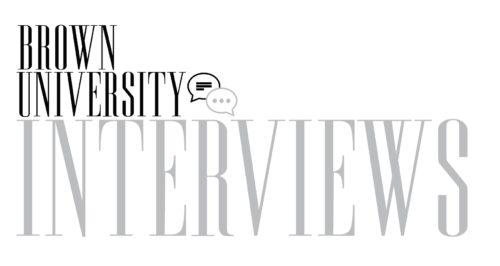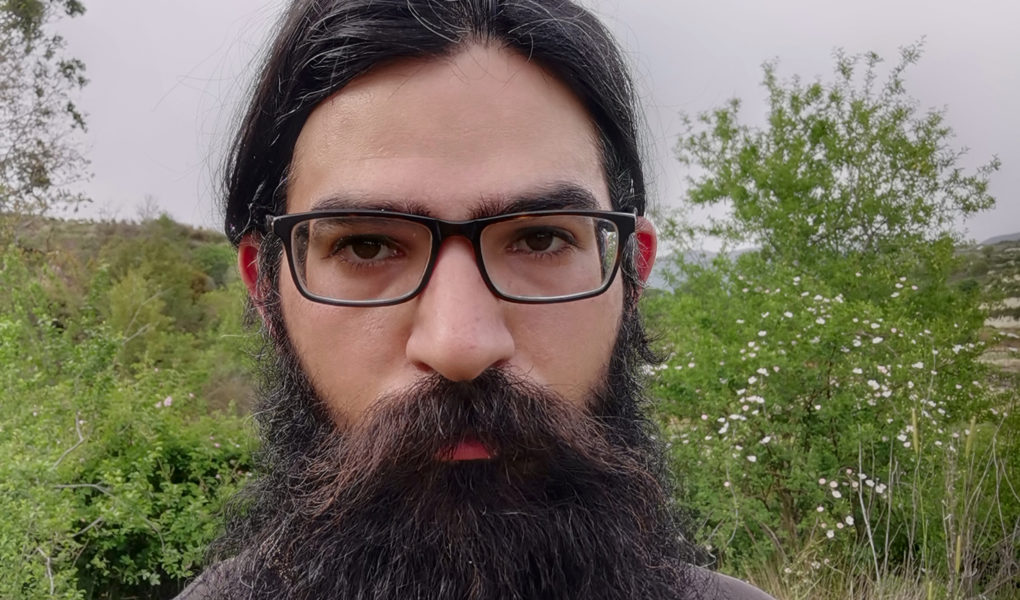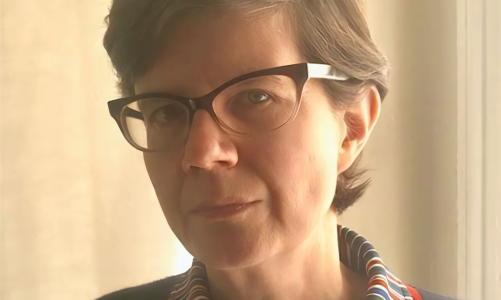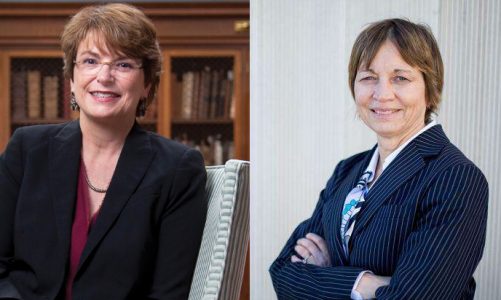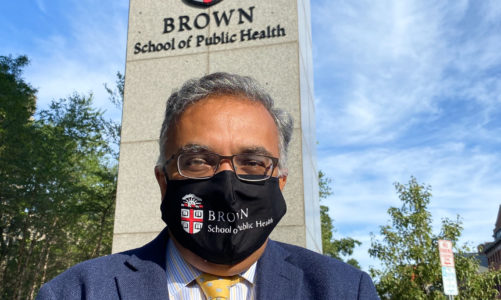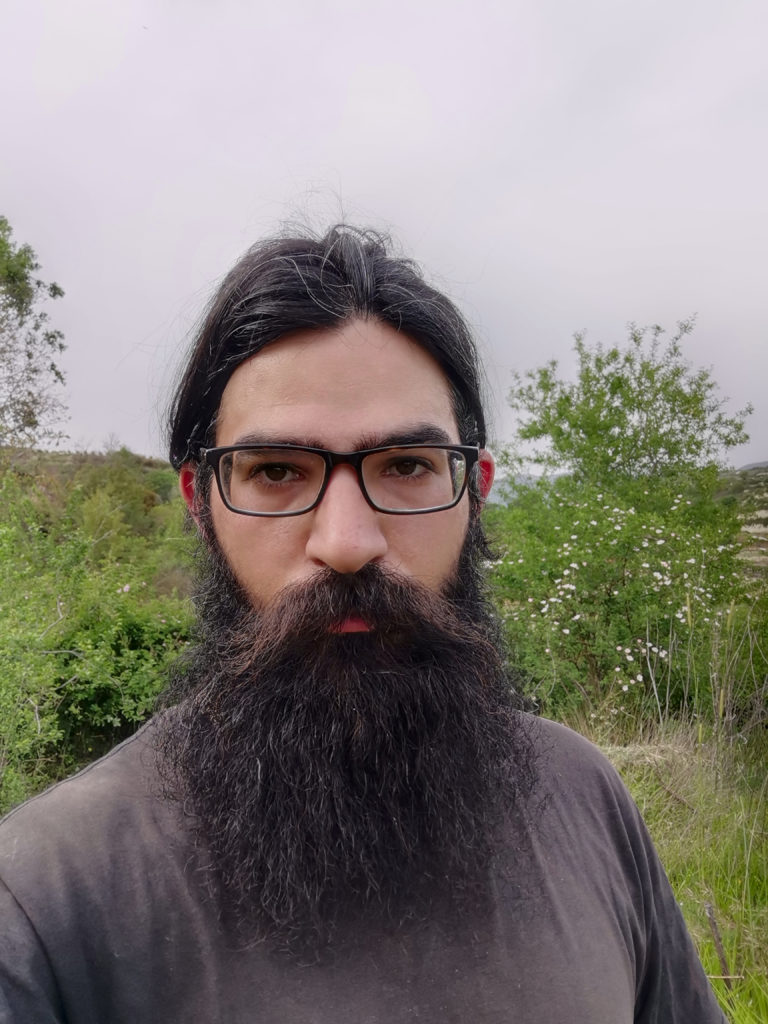
Born in Greece in 1988, Protesilaos Stavrou is involved in the Linux (alternative to Windows and MacOS; an open-source operating system) and Emacs (extensible and versatile text editing software used by programmers, authors, bloggers, and more) communities. Stavrou is a philosopher; he releases video essays on YouTube and writings on his blog which blend distant philosophies related to free and open source software and Unix to law and politics. Stavrou has a formal education in European politics, law and economics, intellectually specializing in the European Union’s Economic and Monetary Union and having previously worked in politics-related fields including as a parliamentary assistant at the European Parliament.
In this interview we discuss his experience building a small yet loyal internet following, the philosophy of thinking for yourself and living on your own terms, the role of a university education, living in the mountains, and the facets of his humanity not often revealed online.
Kristoffer Balintona: Let’s talk about your YouTube channel. Why did you decide to make one?
Protesilaos Stavrou: I actually wanted to practice my English. I know it seems odd since my content is not at all related to that, but I used to live in Brussels, the capital of Belgium. When I came back to Cyprus a few years ago, all I could speak was Greek. I wasn’t practicing English nor French at all. So my first motivation to produce YouTube videos was simply to practice my English. It was mostly me just recording my voice, I didn’t care about reaching out to a specific audience and didn’t have a predetermined plan. It was only afterwards that I discovered free software on Linux as well as Emacs which gave me something more concrete and a niche to focus on. From there, my channel grew organically.
Unlike other YouTubers, your channel seems unconcerned with growing its following. Is that accurate?
You’re right, I don’t really care about the channel per se. For me, the channel itself, whether it grows, whether it makes money, or whether it becomes popular, is not really of interest. In my opinion, if you put something like that as your number-one goal, then, whatever you do, you will instrumentalize that motive in order to pursue that end. If you have to conform with expectations then you will become the embodiment of those expectations and you will no longer be yourself. Instead, you will become someone that conforms with those expectations which will inevitably dilute what you have to say. Whereas, if you are true to yourself, you don’t need to do that. It will be sustainable; you can do it forever.
I think you should put yourself first and then the audience will follow. Even if there is no audience, what matters is whether you can be yourself and get the most out of what you are doing. For me that is, at the end of the day, an intellectual activity that broadens my mind and satisfies an innate curiosity.
Then what are your goals for the channel, if you have any at all?
I don’t want others to follow my channel or to follow me in particular, in the sense of tracking the minutiae of my life. I want others to focus more on the principles I talk about. I see the world under political, social, and human terms, which is not the case for most of those in the Linux and Emacs communities. Reality does not consist of each person living in their own bubble; there are systemic magnitudes and structural issues. Regardless of the topic, I want it to be useful to others by speaking in a way that can be applied generally to everyday life. For me, the only long-term objective for the channel is to keep growing organically and for it to continue being a place where I post my thoughts in the way I do now. So as long as I get to do my thing, this will remain a hobby rather than a job. I don’t see it as something that has to pay dividends.
What has been the most pleasant lesson you’ve learned from posting YouTube videos and blogging?
What surprised me the most was that there exists a whole social and human element to the free and open source software communities. I receive emails [from those who have seen my videos] practically every day now where I discuss topics pertaining to technology but also life in general. I became impressed by the vibrant communities I found that exist around these tools.
I learned that they are not just tools; they are also what keeps us together and I am very happy to be part of this community. These software are developed by a distributed network of volunteers willing to disseminate knowledge that has been processed or considered thoroughly, which is incredibly inspiring. When you are in this kind of community, you really want to put the best version of yourself out there and be useful to others.
What life lessons did you learn from your university experience?
I studied European politics, law, and economics, which is an interdisciplinary study. My focus was on European Integration: how the EU (European Union) has gone from a small coalition of states centered around a specific set of interests into today’s federal system of sorts. I’m not interested in politics in the narrow sense of party politics or in the sense of what person X says about situation A. I am mostly interested in the bigger picture, which includes not just the political process — party politics — but also economic implications with social and cultural dimensions. There is always a broader narrative, something that we can extract and generalize independent of the specifics of the case.
Even though I attended university, I came from a working class background. I didn’t necessarily have the prospects to succeed. Going into university was actually a luxury for people in my income distribution. I had to work full time. I didn’t have the university life of going into campus, going to classes, and then having free time. For me to attend university and have to study and work full time wasn’t easy. I was not particularly talented either.
Nevertheless, I actually learned more than what was expected because I didn’t miss any classes. When we would have homework, the professor would give us three or four chapters from a book to study, but I would read the entire book because I wanted to learn. It wasn’t about the homework itself or the degree; it was about learning the content. Even over the weekends, I would study if I wasn’t preoccupied with my job.
As someone who provides a comprehensive and free resource for autodidacts, what role do you think formal schooling plays in education?
The university itself cannot teach you anything. You have to teach yourself. Of course, it offers you a platform to learn. It offers you everything that you need access to: libraries, one-on-one meetings with professionals who are experts in their field, like-minded peers. However, at the end of the day, they cannot do the work for you. You are the one who has to read the books, study on your own, and think things through. It’s about learning for your own betterment.
And, of course, when it comes to making sense of the world, when it’s no longer about assignments, that broadened horizon really helps you see the bigger picture. University is its own little bubble where you are safe if you follow the rules and get good grades. You will learn a lot, of course, but when it comes to the outside world, the world beyond the confines of the university, you really need to learn to think for yourself, not just whatever box you were placed in at school, university, et cetera.
I am aware that you moved to a remote area in the mountains. What prompted that decision? Is that related to your belief that we should always think for ourselves?
Yes. I grew up in a small city in Greece and lived most of my life in urban areas. I currently live in mountains located in Cyprus, which is an island in the eastern part of the Mediterranean Sea. I saw this as an experiment: I thought I would take the risk and see what happens. Going back is always an option if I change my mind or get bored and is really the worst case. The reason for this decision was that I wanted a change of pace. I wanted someplace that would be literally and metaphorically far away from the urban “EU bubble” that I felt I was in when living in Brussels.
I didn’t always have this mindset. My mindset used to be: “Let’s focus on the task that I have to do. Let’s just conform with the rules of the game. Let’s just do what we are told to do and see how it goes from there.” The point is that I thought I was happy. I had fun and work to do — and enjoyed those moments — but I started to feel that I was not moving at the pace where I felt I was 100% committed to what I was doing. I was thinking that I wanted to move in a different direction. I wanted to go one way, but life was taking me another way. My lifestyle needed to change. At the time, I was feeling this tension, but I couldn’t specify it. So, I wanted to take a step back and see how things stand and reassess them by listening to my mind. I wanted to withdraw, take things in, think things through, and then commit again.
I think I was really asking myself this: “What are your priorities? Do you want to put your own wellness first or what is best for your employer first?” For me, I wanted to prioritize my wellness. If I am well, if I am fine with myself, if I am focused on what I’m doing, then, of course, I can also perform in my work. On the other hand, if I must follow someone else’s schedule or lifestyle, there will be friction which causes me to not feel 100% comfortable. I won’t be 100% committed to the cause. Thus, I wanted to take control and see whether I can turn things around.
It may have been drastic, but it was effective. It has helped me a lot to escape from the fast pace of city life.
Would you say that your Linux and Emacs journey is a manifestation of those values?
Yes, but I would say that those are epiphenomena, the things that happened afterwards. What preceded them was this exact change in mentality. This shift in mindset into a gradually more deliberate lifestyle, a lifestyle where I control more of the factors that affect my life. So that was the general principle; to be in control of as many factors as possible. Of course, I cannot control everything, but to at least be in charge of whatever I can. This inspired me to search for alternatives for the software I used to use. And, of course, part of that process was the discovery of Linux and all the other free software tools in the free software space, including Emacs.
What have you learned specifically from living in the mountains?
Since coming here, I’ve learned a lot from a new freedom to think and commit to work without any distractions. For example, every morning I go hiking for an hour or so. Ten kilometers (6.21 miles) is now a regular walk for me. I think this basic level of fitness can really help your intellectual pursuits. For example, I wake up in the morning and have lots of energy because I am in this regular cycle of good fitness and diet. This gives me the energy needed for the clarity of mind to pursue other interests. In Ancient Greece it was said that “A healthy mind exists within a healthy body.” I also hike for the opportunity to be alone in the mountains with nature. I get the chance to withdraw from all the noise, literally and metaphorically, and to freely think about my projects and clarify my thoughts.
But there is also simply the awesomeness of nature. When I stand on a mountaintop and I see the various open horizons, mountain ranges, landscapes, and forests, it really revitalizes me. It’s a special experience that I never had in an urban setting.
Besides hiking, are there any other hobbies viewers might be surprised to hear you have?
I used to be a football player, particularly a midfielder. The reason I didn’t become a professional is because of an injury. Of course, I enjoy sports in general. I like to exercise: hiking, running, calisthenics. These are things which I have been doing since I was in my teens. I also like to learn about herbs that I come across in the area. After a walk or hike, I come home and search online for the indigenous ferns and read about their properties and uses.
You’ve mentioned your dog. Does he ever accompany you on your adventures?
Of course! I really like all animals. I do have a dog (cross-breed between a German Shepherd Dog and an American Pitbull Terrier) named Atlas, but I also like cats and all sorts of other animals. I have taken care of dogs for several years, and I see my dogs as part of the family. They aren’t just pets. They’re really your friends and can help in all sorts of ways. They’re also my hiking partners — there’s always a dog by my side when I go out into the mountains.
Finally, if you had to give your nineteen-year-old self advice, what would it be?
In life, you should not always try to accommodate other people’s wants. At some point you should draw a line and say, “Look, I understand your circumstances, but you also have to take me into your own account and my own subjectivity, personality, and specific way of operating.” I think this is especially true for people who are, like me, quiet and don’t speak much. I know this may sound weird because all my videos are basically monologues, but I am the silent, introverted type. So for a person like me, it’s even more difficult to stand up and say, “Hey, you need to think of me as well.” Stand up and tell people that you cannot just be the red carpet upon which others will parade.
*This interview has been edited for length and clarity.
